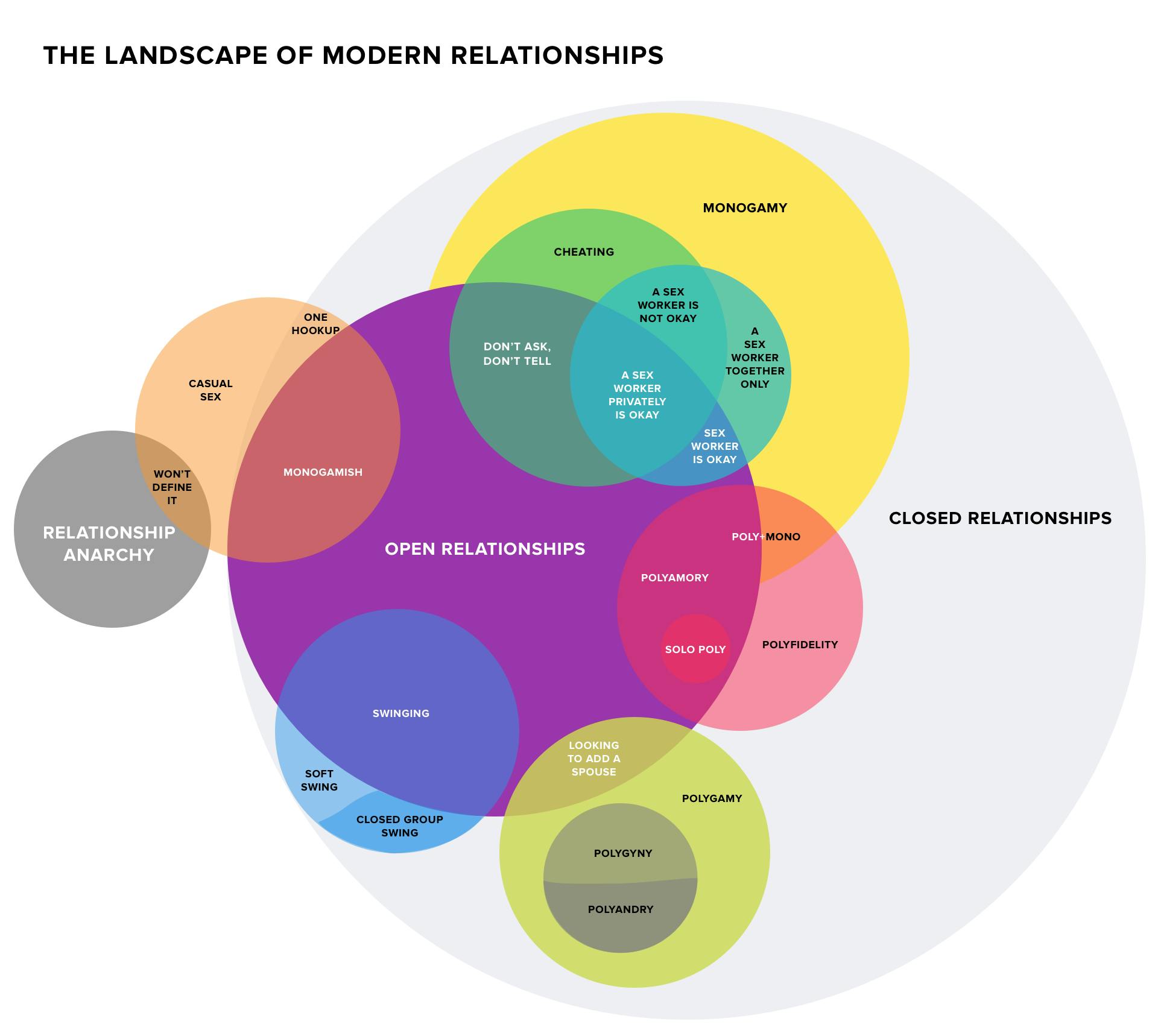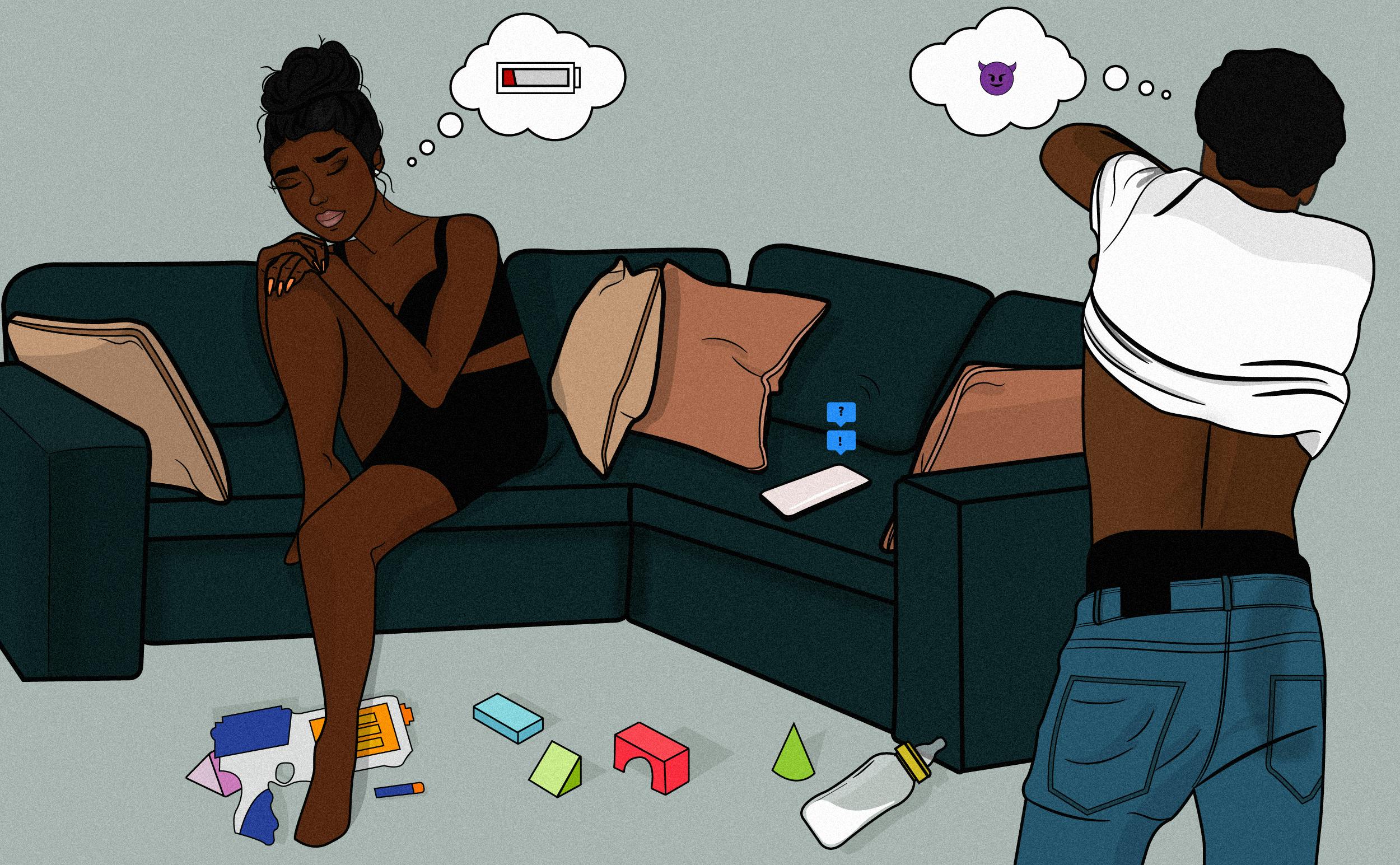Ethical and Consensual Free Pass: Testing Non-Monogamy
Ethical and Consensual Free Pass: Testing Non-Monogamy
Giving each other a free pass to have sex with somebody else in a usually monogamous relationship – if given the chance, would you take one no-strings-attached night with someone?
I think many monogamous couples get to a point in their relationship where they consider the possibility of sleeping with other people or at least relaxing the laws of monogamy a little. Increasing numbers of people are interested in exploring alternative relationship models. There are many different facets to pushing the boundaries of monogamy, and giving each other a free pass for a night does not mean that you want to quit the monogamous lifestyle all together. While monogamy offers many positive aspects, like more emotional security that often comes with sexual exclusivity, approval from society, a lowered risk of STIs, it is undeniable that it also has downsides that many couples struggle with. For example sexual boredom, issues with incompatible sex-drives, the feeling of not being able to express and communicate your desires to your partner without hurting them and so on. So for some people testing the waters of a more monogamish life-style, as expert Dan Savage defined the term, is a possible solution to the slumps of monogamy.
Opening up to a monogamish lifestyle, that might lead to a form of consensual non monogamy, can be as exciting as it can be scary. It requires a lot of open conversation, trust and ability to reflect and process your own feelings. And just like in any other relationship, cheating happens and people can get hurt. I think a lot of people think that cheating in consensual non monogamous relationships or while giving each other a free pass can’t happen, but cheating in non-monogamous relationships is a very real thing and it hurts just as much as cheating in a monogamous relationship. Depending on how you define your monogamish relationship, rules can be broken. But I don’t think fear should hold us back from anything that we truly love. And while a “hall pass” or a monogamish relationship can be risky, committing to monogamy is also a risk that we often don’t think about. Love in general is risky business. Anyone who’s ever been in love can agree with that.
For this week’s guide, I will elaborate from the original App card about giving each other a hall pass, to a more general discussion about opening up to monogamish relationships. Before we get started, I’d like to point out that there is no absolute guide to monogamish living or to consensual non-monogamy. Every couple defines their arrangement differently. This is a topic highly attached to personal feelings, fears and attitudes, and unfortunately there is no one-fits-all recipe to a successful go at redefining the boundaries and rules of your relationship. Being “monogamish” is different for everyone and there is no one right way to do it, but I think there are certain elements that you can educate yourself about to avoid making unnecessary mistakes.

Taken from openrelationshipcourse.com
What does sleeping with somebody else for one night – or from time to time – mean for the nature of my relationship?
Does sex with somebody else mean that I’m leaving monogamy for good? Not if you don’t want it to. There are many different kinds of monogamish or consensual non-monogamous relationships and each one of them has several subcategories. Non-monogamy is an umbrella term for every practice or philosophy of intimate relationship that does not strictly hew to the standards of monogamy. Giving each other a free pass does in no way mean that it is automatically ok to sleep with other people more often from that moment on. It means that you are still in a primarily monogamous relationship, but that you have both given your consent to act on your desire for a third person, without having to feel guilty or ashamed.
Relationship and sex columnist Dan Savage defined the term monogamish, ‘monogamishes’ are people who have already withdrawn from absolute monogamy. It describes couples who are neither entirely monogamous nor polyamorous. “It means to be in a relationship that is mostly monogamous but that allows for some small amount of sexual openness” – explains sex educator Dr. Zhana Vrangalova (Tonic). Monogamish can also be seen as a transitional stage of relationship in its transformation from monogamy into something different. Monogamish occurs when desires of a couple stop fitting in the framework of what we know as monogamy.
Being monogamish does not imply giving up the values of a monogamous relationship, like deep emotional commitment and prioritising your partner. Being monogamish simply means sharing your sexual fantasies with your partner, even if they involve other people, welcoming new people into your life as an individual or as a couple, trying different types of non -monogamy looking for the one that the couple feels good at and laying down your own rules of love. It means not trying to police each other’s feelings and allowing desires for other people and it might mean occasionally sex with other people is permitted.
Make clear rules and set boundaries (and expect them to change and progress over time)
This is SO important. The one and only rule that applies to all relationships models is constant communication and discussion. Before you sleep with somebody else it is essential to sit down together and discuss boundaries and rules. The slightest variation or misunderstanding can feel like betrayal and cause harm to the trust between you and your partner. If you don’t comply to the rules of your arrangement you are crossing into cheating territory and if you love your partner you don’t want to go there.
Be sure to discuss rules such as who the “other person” can be, can it be somebody you already know or should it be a stranger? Do you want to talk about the experience after? What if one of you feels terrible while it happens or after? What if unexpected feelings get in the way? Some couples agree on “only one night stands” or “only when we are out of town”, while others have a strict “don’t ask, don’t tell” policy.
You should also talk about health concerns that you might have. Most monogamish couples practice an impeccable condom use when sleeping with other people. Your rules and boundaries can change over time. What might have felt good the first time around, might not feel right or so important the second time. Allow yourself to be flexible and enjoy growing together as a team. You might even write down the boundaries so that it’s easier to remain accountable to them while they’re still in place.
Do it from a place of strength – not a place of weakness
In other words, don’t use sleeping with somebody else to fix your relationship or personal problems. If you do it, do it because it feels good. When you have no doubts about loving each other and you trust each other completely, it can be an incredibly empowering and reassuring experience for both parts that might improve and strengthen your relationship immensely.
Also, make sure you don’t pressure yourself or your partner into something you are not comfortable with. For sleeping with other people to succeed, it’s imperative that you’re both fully on board with the venture when it’s time to actually start seeing other people. If you’re not and forge ahead anyway, things are almost certainly doomed to failure. While it is relatively normal that one person will be more hesitant than the other, you should try to find common ground. If discussing your options reveals that you can’t seem to find a common denominator, consider pausing the discussion for as long as necessary to give each other more time and space to think this through.
Be aware of the social stigma around non-monogamy that still exists
Once you start talking to people outside of your relationship about exploring non-monogamy, you might be surprised by the stigma still attached to non-monogamous couples. You might be on the receiving end of bad comments and disapproval from judgemental friends and family who feel like sleeping with somebody else means you’re not committed to each other enough anymore, or not loving each other enough. Don’t let it get to you.
I’d like to work towards a world in which we can define ourselves and define what love and commitment mean to us, instead of being bound to societal norms telling us how to love each other. If monogamy is not your cup of tea – that’s fine. Nobody should be able to judge your relationships except yourself. If you and your partner(s) are happy, then that’s the only thing that counts.
No matter how well you prepare – consider the possibility that it won’t go the way you thought it would
Especially if you are doing this for the first time. There is no such thing as normal and abnormal. Jealousy and envy are human feelings that we can’t always control, it can still hurt and that’s ok! Don’t be angry at yourself or your partner and be sure to talk it out. Just like monogamous relationships have negative sides, this is just one of the downsides that can come with sleeping with other people – even if it is just for one night. Never stop communicating and don’t be ashamed of your feelings.
Get professional help! Sex therapists and non-monogamy coaches can be a great option to explore
We hire fitness coaches, yoga coaches, life coaches… why not hire a sex therapist specialised in consensual non-monogamy?
Dr. Zhana Vrangalova, NYC-based sex researcher, writer, and educator explains:
"There may be nothing wrong with craving multiple sexual and romantic partners, but that doesn’t mean there aren’t challenges to embracing those desires, and, even more so, acting on them. Internal guilt and shame, judgmental friends and families, sexually transmitted infections, crossing and poor setting of boundaries, unsatisfying sex, catching unwanted or unexpected feelings, difficulty finding partners to hook up or date, jealousies and insecurities… the list goes on. Breaking the norms of a relationship can be hard, emotional work. Coaches and Sex Therapist can help you explore your options in a way that is healthy for you (both emotionally and physically), as well as ethical toward your sexual and romantic partners. "
It can also just be a lot of fun and a great way to learn more about yourself and your partner’s desires. I mean you are paying a professional to listen and help you have better sex and a stronger, healthier relationship. Doesn’t sound too bad, don’t you think?
Below is a conversation between two of my favorite experts on relationships! Esther Perel and Dan Savage discuss Love, Marriage and Monogamy. If you want to hear more about this topic, this video is an absolute must watch!
I know that many people struggle to speak openly about their sexual desires with their partner so I created this app to help those who might feel shy voicing their fantasies. Or maybe you feel totally comfortable speaking about your fantasies, but you’re ready to discover some new kinks that you might not have thought about yet. The XConfessions App can be used for those couples who want to discover some new kinks and spice things up in their sex life.
Read what the media says about it:
A game-changer for exploring sexual fantasies (Elite Daily)
XConfessions app helps couples talk about their fantasies (Bustle)
Erika Lust’s new app is making it easier to talk about kinks and fantasies (Dazed)

GET A FREE MOVIE













